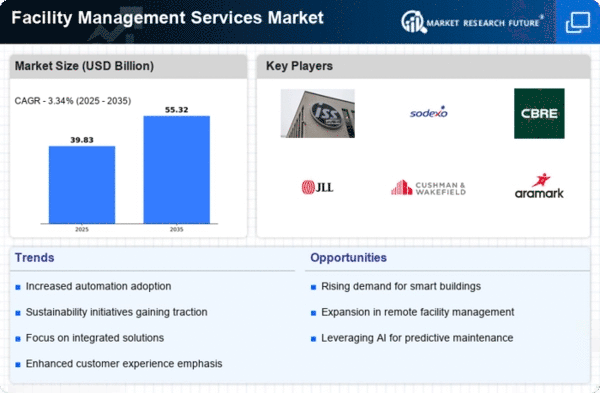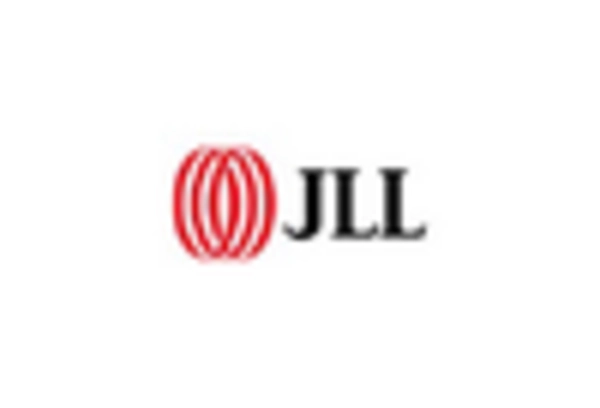Market Share
Facility Management Services Market Share Analysis
The increasing trend of urbanization and a rising population has spurred the emergence of "smart cities" and "business hubs" in various regions such as North America, Europe, and Asia-Pacific. Contemporary cities face challenges in meeting essential elements like socio-economic development and quality of life, which are core offerings of smart cities. Governments worldwide are initiating initiatives to integrate and monitor critical infrastructure, including tunnels, waterways, roads, airways, communication networks, power supply, and railways.
These initiatives focus on controlling maintenance activities and optimizing resources, addressing security concerns. Smart cities and business hubs leverage Internet of Things (IoT) technology to connect disparate infrastructure, utility, and public service grids, generating real-time aggregated data. IoT implementation in connected cities spans transportation, water and wastewater management, bridge inspection, parking facilities, energy, lighting, fire detection, logistics, surveillance, and more. Future cities and offices are designed to facilitate constant communication among devices, providing real-time information to municipalities and the public. Cities like San Francisco, Charlotte, Philadelphia, Chicago, and New Delhi are at the forefront of adopting smart city approaches, encompassing smart infrastructure development, data utilization, functional components, and community engagement. The surge in smart city projects globally, coupled with increased investments in developing infrastructures, has driven the adoption of innovative and advanced technologies in the construction process.
This heightened demand for cutting-edge products presents substantial opportunities for the growth of the facility management services market. The evolution in services, solutions, and amenities across diverse sectors is expected to drive demand for personalized facility management services for employees and business occupants. End users now anticipate facility managers to serve as workplace concierges, efficiently providing technologies and services that contribute to a more comfortable and productive work environment. There is a growing preference for the "Hybrid Service Model" (HSM), which integrates products and/or services with technology to align with emerging trends.
Companies are increasingly adopting the HSM for automation and performance management, responding to the rising demand for service options. These trends indicate a shift towards on-demand, personalized, and episodic services, moving away from dedicated full-time resources. The growing inclination towards virtual workplaces and the demand for personalized services present numerous growth opportunities for the facility management services market.


















Leave a Comment